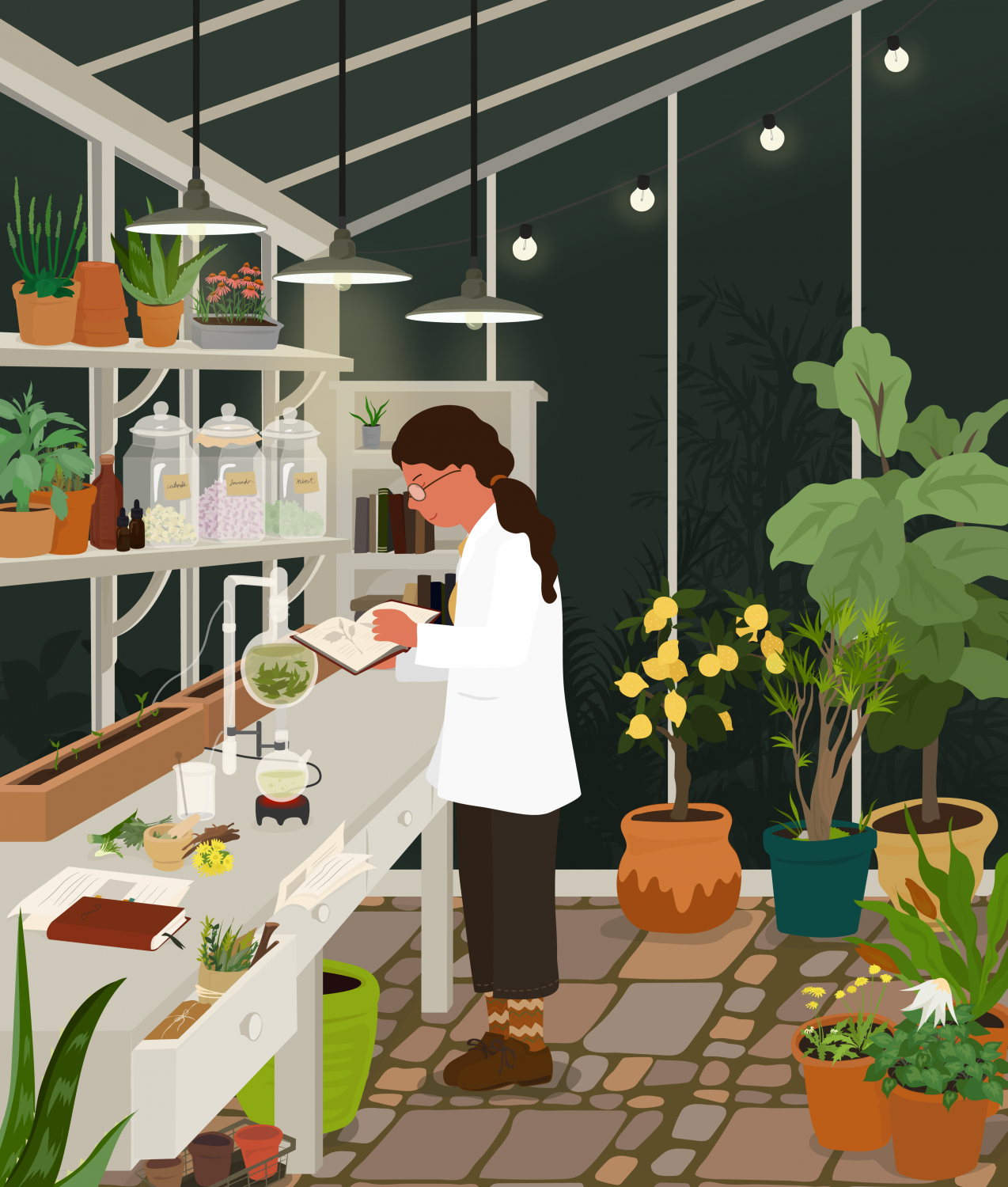On "The Florist Thinks"

When I received an email from North American Review stating they wished to publish my poem, “The Florist Thinks,” I was surprised and delighted, as I had been reworking that poem for years, and was ready to give up on it. But after the initial shock wore away, I experienced the odd sensation of having one of the most painful parts of my life pass through me. This poem had come out of that time, and now it was going to be made public, official.
Nothing in that poem indicates this in any obvious way to the outsider. It is a poem that is quite straightforward in humorously reimagining the florist’s job, my actual job for 13 years, as purveyor of lewd plant parts in mid-seduction, seller of petals as mood enhancers, and master manipulator of floral reproductive parts. Perhaps wisely, the poem stays away from any personal dramas I was experiencing at the time.
The poem is unusual in that I began working on it over seven years ago, and never completely trashed it. I normally give up on a poem much sooner because I have an aversion to ruminate too long on my past writings. However, this is only in self-protection. I was born, like many poets, with a tendency to look too long and hard at my reflection, fall into the water, and subsequently drown. I’ve developed a habit of forced detachment in the aim to balance my emotions, but sometimes an indulgence in reflection is in order.
Normally, I cannot recall the exact moment I began writing lines for any particular poem. However, “The Florist Thinks” is special in that I have a strong memory of sitting on my tiny loveseat, the brown microfiber one I bought when I broke up with my partner and moved out of his apartment. As I wrote, our two-year old son slept in the only bedroom. It was nighttime, and I was struggling to write down the lines that were coming to me. I was exhausted and falling in and out of sleep. I didn’t know it yet, but I was pregnant.
I had moved into that tiny apartment less than a year before, signing a lease for the smallest, cheapest apartment I could find on Indianapolis’s Westside: only 457 square feet. I was in grad school, taking care of my son, and working in floral and produce departments for a chain of grocery stores. Once on my own in that little apartment, I carved out normalcy and survival, battling poverty and bouts of depression. The father of my kids never gave up on me; however, and we resumed our relationship, but continued to live apart. It was easier to deal with our differences when living in separate spaces. We were just beginning to be settled in a happy routine when I unexpectedly became pregnant, and he unexpectedly became laid off.
From there, things became much worse before they got better. Yet miraculously, they did. Seven years later, I can happily report that we are all doing well. In fact, I just signed a contract to be an Assistant Faculty member at a college where I have been adjuncting for five years. Yet I feel nervous, almost guilty, though I have worked so hard to get here. I know what it is like to be on the bottom of the wheel of fate and feel like the wheel will never rise again.
When we do rise, what do we take with us from the bottom? I wrote many ‘grocery store florist’ poems during subsequent years and was only able to publish a few. The grocery store poems that dealt with class, with a single mom’s struggle, were the most rejected. I have also had people tell me they’d rather not know that the florist in the poem is in a grocery store because it doesn’t give them the “right image.”
“The Florist Thinks” is a poem that has the ‘right images,’ not that there’s anything wrong with that. I worked hard on this poem and feel the language has been condensed and sharpened, but I can’t help wanting to also tell the world that there is a whole mess of despair and grit behind it.
Oftentimes I see poems about florists, poems about grocery stores, but not from the perspective of the florist themselves or the actual person working in the grocery store. A couple do come to mind, though: Roethke’s famous poems about his work in his father and uncle’s greenhouses, and the late British poet Sarah Maguire’s poems about her experiences working as a municipal gardener (a job I worked during and after college and also wrote poems about).
“The Florist Thinks” made it out of the bottom of my life, miraculously, but I also want to say that there is nothing to be ashamed regarding the situation I was in. I was doing the best I could, and I never wanted pity. However, I did, and still do, want people, particularly academics, to stop judging working class people.
Recently, I read an excellent essay by the poet Emily O’Neill in Catapult Magazine, “Every Day is a Writing Day, With or Without an MFA.” She notes, “there are far more writers ringing up your groceries, writers pulling your daily espresso shot, writers in the laundries of hotels…” As I read those lines, I couldn’t help but shout, “Yes!”
How many times had I seen the confusion in people’s faces when I told them I was a writer and professor as I was arranging their flowers, tying their balloons, or ringing up their groceries? How many times had I felt a type of shame and simultaneous satisfaction at subverting their expectations? How many times had I stealthily taken notes under my floral counter and written down the bones of poems?
I tell people that I don’t miss any of that, but I realize I am already starting to look back at that time in my life with wonder.
Recommended
Nor’easter
Post-Op Appointment With My Father
Cedar Valley Youth Poet Laureate | Fall 2024 Workshop






